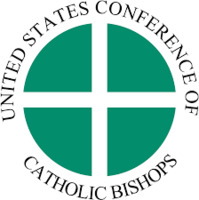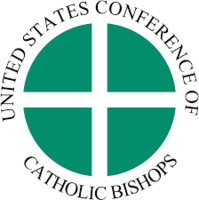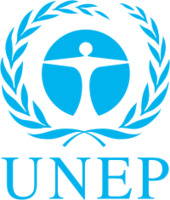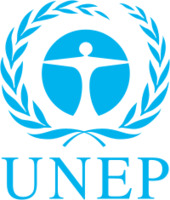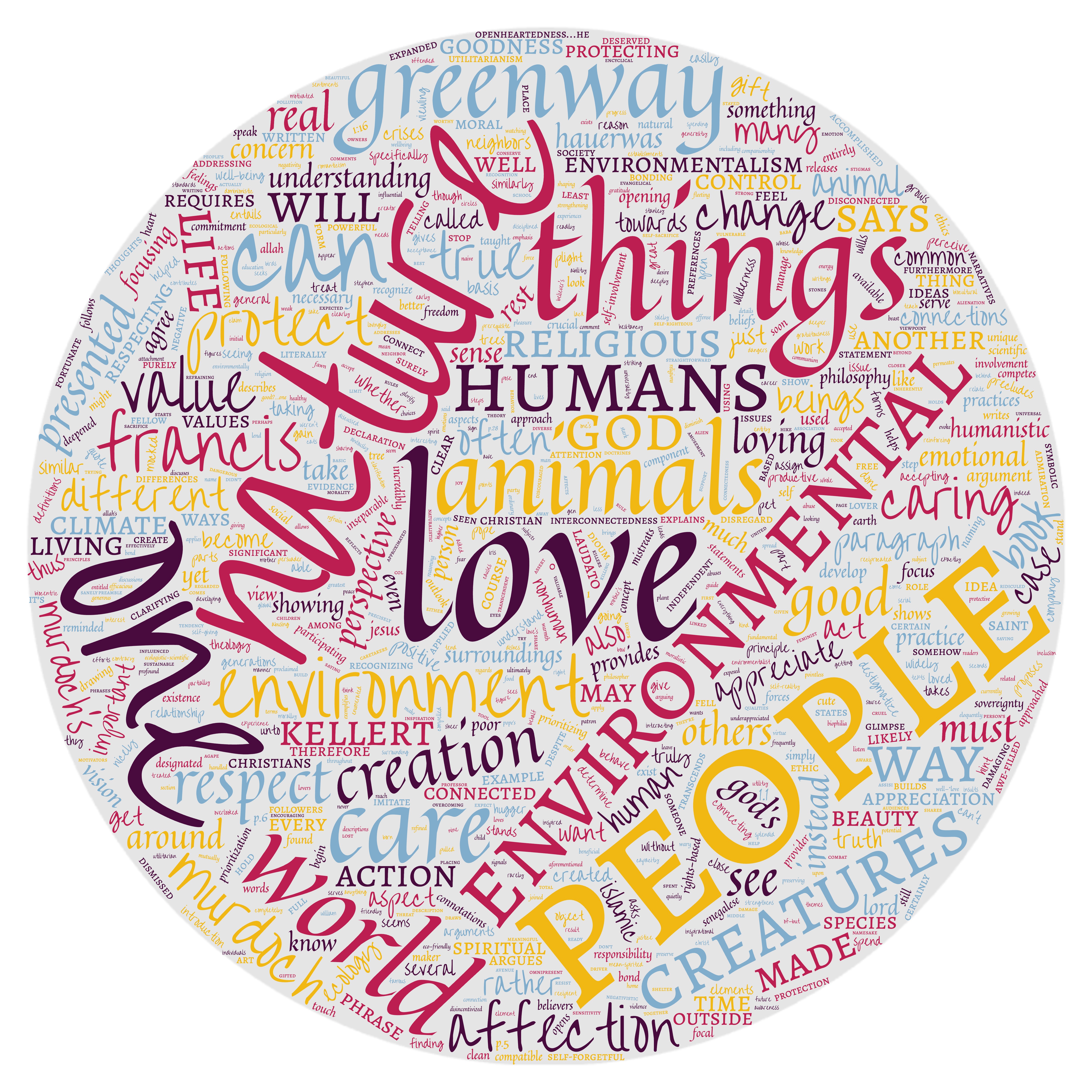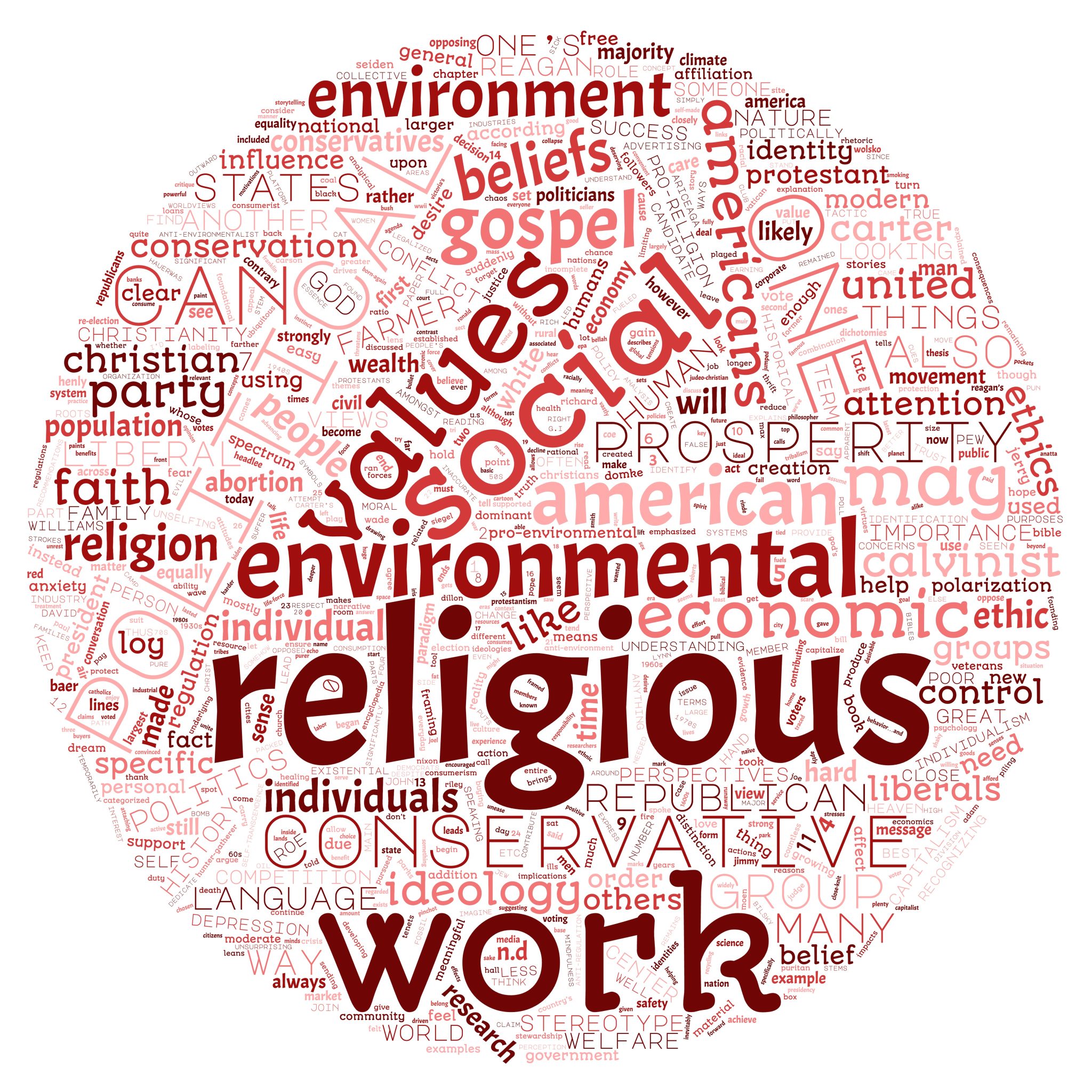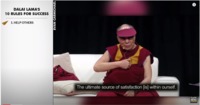Search
79 items
-
Leadership Meeting Guide - Protecting Your Nest
This meeting guide from Evangelical Environmental Network MOMS offers ways to live in a simple, toxic free home. It focuses on ways to protect children from fossil fuels and consumption of chemicals that are known to cause diseases. Suggestions for household improvements in this area include: reading labels, dumping processed foods, using homemade cleaning products, and more. -
Earth Day statement from ELCA presiding bishop
The Reverend Elizabeth A. Eaton, Presiding Bishop of the Evangelical Lutheran Church in America (ELCA), issued an Earth Day statement on behalf of the ELCA. A salient excerpt from the statement is shown below:
"The effects of the warming climate are felt in nearly every corner of the globe. These include increased migration, food insecurity due to changing agricultural landscapes, national security issues and health problems. As bad as it is for all creation, the most vulnerable people around the world are suffering the most. Yet they have contributed the least and, as noted in the United Nation's 2030 Agenda for Sustainable Development,[iii] are ill equipped to adapt to or mitigate the effects of a changing climate to build resilient communities." -
Climate Change
The Presbyterian Church has put forth this video on care for creation, emphasizing that Christ has called us to go out into the world to care for creation and our fellow humans, especially the poor. The Union of Concerned Scientists has identified food, transportation, and energy as three key areas of focus to help stem climate change Congregations can help by implementing energy saving techniques, participate in recycling and composting waste, teaching children to grow food, and incorporating salient creation care concepts within educational settings. -
Hazardous Waste, Race, and the Environment
This statement was approved by the 207th General Assembly Presbyterian Church (U.S.A.), 1995. The predominant theme focuses on the impact that hazardous waste has on individuals who are suffering from poverty and minority groups. The final section provides suggestions for taking action. -
USCCB President's Refelction and Prayer During Coronavirus
The president of the U.S. Conference of Catholic Bishops Archbishop José H. Gomez offers his statement regarding COVID-19 to bring comfort to those affected by the virus and to pray for recovery. He offers prayer to healthcare workers and civic leaders helping fight against the virus and calls for solidarity among the congregation.
He leads a prayer to the Virgin Guadalupe for protection and healing, and for compassion and patience in the church.
-
Catholic Response to Outbreak of Coronavirus
Chairman of the U.S. Conference of Catholic Bishops' Committee on International Justice and Peace and Bishop David J. Mallot, Sean Callahan the president of Catholic Relief Services, and Sr. Mary Haddad, RSM, the president of the Catholic Health Association of the United States offer a statement in the midst of the Coronavirus outbreak. The statement applauds healthcare workers and calls on governing bodies to work together to combat the virus. The statement also recognizes the U.S. for sending 17 tons of medical supplies to China, an example of how compassion and teamwork is needed at this time. A part of his address contains the following:
“The Catholic Church in the United States stands in solidarity with those affected by the coronavirus and their families, health workers who are valiantly trying to diagnose and treat patients, and those under quarantine awaiting results of their screening for the virus. We offer our prayers for healing and support those organizations, both domestic and international, working to provide medical supplies and assistance to address this serious risk to public health." -
Faith, science and technology
The World Council of Churches (WCC) discusses the intersection of faith, science, and technology and what the future might hold given the current trajectory of new technological developments. The concluding paragraph provides some summary statements regarding this issue:
"The work done so far on genetic engineering has helped to identify also other challenging technological developments, especially in the field of nano-scale technologies that operates at the scale of atoms and molecules. According to the U.S. National Science Foundation, the global market for nano-scale technologies will exceed $1 trillion within six years, yet most governments and intergovernmental agencies have hardly heard or thought of nano-technology. One of the Ecumenical Conversations will focus on the challenges by new technologies to the churches’ witness to the sanctity of life. The question will be if the WCC can facilitate exchange among the churches on these issues in order to broaden the basis for common witness and action. Is it true that time has come for a new emphasis on the concerns posed by science and technology?" -
A Prayer for Protection in Time of Pandemic
A prayer for those who are sick, vulnerable, and/or have passed away due to illness, to Mother Mary and Son Jesus; Adapted from the prayer of Pope Francis, provided by the Knights of Columbus. -
Coronavirus, Faith Leaders, and Sustainable Development
An event organized by the United Nations Environment Progamme and the Swedish International Development Cooperation Agency led a digital conference to discuss innovation to combat the environmental crisis in light of the COVID-19. The Faith for Earth Initiative calls for interfaith collaboration to combat environment problems. In the midst of a global crisis, the UN encourages this time to be used for innovation and educational progression. This quote from Iyad Abumoghi summarizes the mission:
“'The coronavirus pandemic is focusing hearts and minds, says the director of Faith for Earth, Iyad Abumoghli. “Faith for Earth is mobilizing youth, the leaders of faith-based organizations, as well as scientists and theologians to work together for innovative change to speed up sustainable development.'” -
Interfaith Response to COVID-19
The United Nations Environment Programme compiled a list of Interfaith responses to the outbreak of COVID-19, including statements from the Berkley Center, Oxford, and the World Evangelical Alliance. The UN recognizes faith organizations as leaders in navigating the impacts of COVID-19 and made this list to recognize these emerging responses. -
Engaged Organizations: Scaling Up Nutrition
Scaling Up Nutrition discuss their vision and goals on their website:
"Since 2010, the SUN Movement has inspired a new way of working collaboratively to end malnutrition, in all its forms. With the governments of SUN Countries in the lead, it unites people—from civil society, the United Nations, donors, businesses and researchers—in a collective effort to improve nutrition. The SUN Movement Strategy and Roadmap (2016-2020) has helped illuminate the importance of nutrition as a universal agenda – and one which is integral to achieving the promise of the Sustainable Development Goals (SDGs).
To realise the vision of a world without hunger and malnutrition, the SUN Movement Principles of Engagement guide actors as they work in a multi-sectoral and multi-stakeholder space to effectively working together to end malnutrition, in all its forms. These principles ensure that the Movement is flexible while maintaining a common purpose and mutual accountability." -
Engaged Organizations: 1,000 Days
1,000 Days non-profit organization for women and children discuss the work that they do on their website:
"1,000 Days works to win support for investments in the nutrition and well-being of mothers, babies and toddlers in the U.S. and around the world. We make the case to policymakers, global leaders and those who influence them that brighter futures begin with ensuring mothers and children everywhere have a thriving first 1,000 days.
From advocating for evidence-based dietary guidelines for pregnant women and young children to providing parents with educational resources and content on baby and toddler feeding, 1,000 Days is committed to nourishing healthy beginnings. " -
Heat and Health: A Faith Response to Building Stronger Communities
"Today, more than 40 percent of Americans are at risk of extreme and excessive heat. July has been a hot month across the country with historic temperatures.
Our resource and toolkit are now available to support you and your community! You can find download the resources here. We have an information briefing paper and shareable resources that show the warning signs of heat-related illnesses." -
Love and Environmentalism
This chapter from the student-written book “Emerging Perspectives on Religion and Environmental Values in America” explores how love and care impact how people interact with the environment, and how spirituality views and impacts this. It discusses how religion encourages love and how love encourages environmentalism, and how the three work together. Below is the first paragraph of the chapter to introduce the discussion.
"My mother had one general rule for me as I was growing up: to respect others, respect myself, and respect the environment. Obviously there were more rules that fell under this— 'clean the dishes after school' being one I was just as frequently reminded of—but they all fell under this principle in some form. This was also the basis of my environmental education: respecting the environment, showing it the care, love and awe that it deserved, was a fundamental aspect of our lives. Every time we would go outside or take a hike, I would be reminded not to touch anything I didn’t have to, to leave things the way I found them, and to appreciate the beauty of our surroundings. These ideas of respecting others and your surroundings are common themes in religious doctrines as well—'love thy neighbor' is a common refrain, and one that is often used in religious environmental arguments. As can be seen in many religious statements on environmental crises, protecting those less fortunate than yourself (respecting others) and protecting the gift of creation (respecting the environment) are the focal points of religious arguments in support of environmental action. Yet the love of nature is often underappreciated or overlooked when it comes to discussions of the environment, despite its universality. Perhaps because the concept is emotional rather than scientific, love is more easily dismissed as a weak persuader, but because it is so basic to humans it stands to be one of the more powerful forces we have available to us. As a common religious and moral value, the love and respect that people are asked to treat their surroundings with is a significant driver in environmentalism, both to better understand the environment and to create a sense of responsibility in preserving it." -
Origins of the Pro-Religion, Anti-Environmentalist Conservative Stereotype
This chapter from the student-written book “Emerging Perspectives on Religion and Environmental Values in America” explores the relationship between political affiliation and environmental values, as well as the stereotypes surrounding them. It examines how religion interacts with political views and the evolution of environmental values thoughout political and religious history. Below is the first paragraph of the chapter to introduce the discussion.
"The conception of someone who is 'anti-environment' usually evokes one of two images: 1) a fat cat in a suit, smoking a cigar while lining the pockets of the fossil fuel industry, or 2) a truck-driving rural American scoffing at the Prius-driving liberals in the cities who preach about their recycling practice. This chapter focuses on the second image...The distinction has been made clear in our minds: liberals care about the environment and conservatives don’t. This, along with another common conception that conservatives are religious while liberals aren’t, paints an inaccurate picture that drives religious conservatives out of the environmental conversation. How did this happen?" -
MLK Day 2024
"ServeOhio Funds 19 Statewide Service Projects Taking Place in celebration of MLK Day
These grants support more than 1,300 volunteers engaging in local community service projects across fifteen Ohio cities
ServeOhio, the Governor-appointed commission on service and volunteerism, announces grant awards to support 19 local Martin Luther King Jr. Day of Service projects throughout January totaling more than $25,000. Much like Dr. King’s legacy, these grants will help nonprofits across the state improve their communities through service and volunteer activities. The grants will fund service projects in fifteen Ohio cities led by more than 1,300 volunteers.
Each project commits to bringing volunteers together to create or improve community assets or infrastructure and supports local community engagement and impact. Additionally, every project includes an education component based on Dr. King’s message of peace, unity, and service to create long-term, sustainable change.
ServeOhio awards these grants with support from the American Electric Power Foundation. Each grant totals between $250 - $1,500." -
Ontario Tech University Sustainability in Art Exhibition
"The Faculty of Social Science and Humanities (FSSH) at Ontario Tech University recently hosted a Juried Art Exhibition with the theme of Sustainability in Art. Artists were invited to interpret sustainability in their own unique ways, resulting in a thought-provoking and inspiring collection.
Due to an overwhelming response, the original plan to select the top ten submissions was expanded to include the top fifteen, who were then invited to bring their art to Charles Hall for the reception event...
First place - Deanna Young for We All Are Part of the Great Circle – $1,250 cash prize
Second place - Camille Augustyn for In Another Dimension – $500 cash prize
Third place - Nuhad Kibria for It’s Not Too Late – $250 cash prize
Three honourable mentions were also awarded to Avery Snelling for Preservation Story Quilt; Katherine Gifford for Nature: Harmonious for Sustainability; and Rebecca Fortin for Wildflowers on Blue." -
A Jewish Response to Environmental Stewardship: LEEDing the Way
The article highlights Temple Israel of Minneapolis's achievement of LEED Gold Certification, reflecting their commitment to sustainability through a multi-year renovation project. This accomplishment aligns with their Jewish values, particularly the principle of Pikuach Nefesh, which emphasizes protecting life and the environment. The synagogue's efforts extend beyond their building to include community-wide initiatives such as climate action resource fairs and partnerships with environmental organizations. Their ongoing commitment to sustainability is showcased through continuous improvements and active participation in broader climate justice movements. -
Earth Dialogue Tour
Two faith-based environmental leaders, Amy Woolam Echeverria and Gopal D. Patel, are travelling across the U.S.A to visit and speak to Catholic congregations, campuses, and other communities. They discuss faith-driven environmentalism and the responsibility to help communities affected by environmental damage. -
Ancient Judean Dates
A date tree planted in Ketura, Israel from 2000 year old seeds found at an archeological site in the Judean wilderness has finally bore fruit earlier this month (September 2020). The harvest was hailed a modern miracle of science. “In these troubled times of climate change, pollution and species dying out at alarming rates, to bring something back to life from dormancy is so symbolic,”... Date palms were praised in the Bible and the Quran, and became symbols of beauty, precious shade and succulent plenty. -
Engaged Organizations: Global Oneness Project
The Global Oneness Project was founded in 2006 as an initiative of Kalliopeia Foundation, and is focused on education aimed a planting seeds of empathy, resilience, and a sacred relationship to our planet. They are passionate about the power of stories and offer a rich library of multimedia stories comprised of award-winning films, photo essays, and essays as well as companion curriculum and discussion guides focused on world culture, social justice and sustainability. -
How Buddhist monks in Ladakh are fighting climate change
Buddhists Monks in the Himalayas are taking a stand to climate change. On Earth Day 2018, thousands of people came together in the village of Yerat to plant trees. The region is rapidly losing glaciers, causing a shortage in water supply to the villages in the area who rely on snowmelt for water. The volunteers were inspired to participate due to their devotion to His Holiness Kyabgön Chetsang Rinpoche and his vision for "a more verdant and organic Ladakh." -
Five Years After Speaking Out on Climate Change, Pope Francis Sounds an Urgent Alarm
This article covers Pope Francis's reaction to the world governments responses to climate change. The Pope writes to unite people through religion in an effort to bring awareness to the movement. The article details how the church is divesting in fossil fuel companies. The article also focuses on the political divide and how it affects people's views on the climate crisis. -
The Wisdom of Houseplants
There has been a recent rise in the popularity of houseplants. This resource relates aspects of tending to houseplants to different ways you can be more mindful about your own life. Through caring for the houseplants, this web page reminds you to be adaptable, to be patient, and to expand yourself. While also additionally reminding the reader that letting go and paying attention to your physical health are both key in positive personal growth. -
Dalai Lama's 10 Rules for Success
This video is the Dalai Lama speaking of how to calm ones mind as well as how to connect with the universe through inter connection of self and creation.





